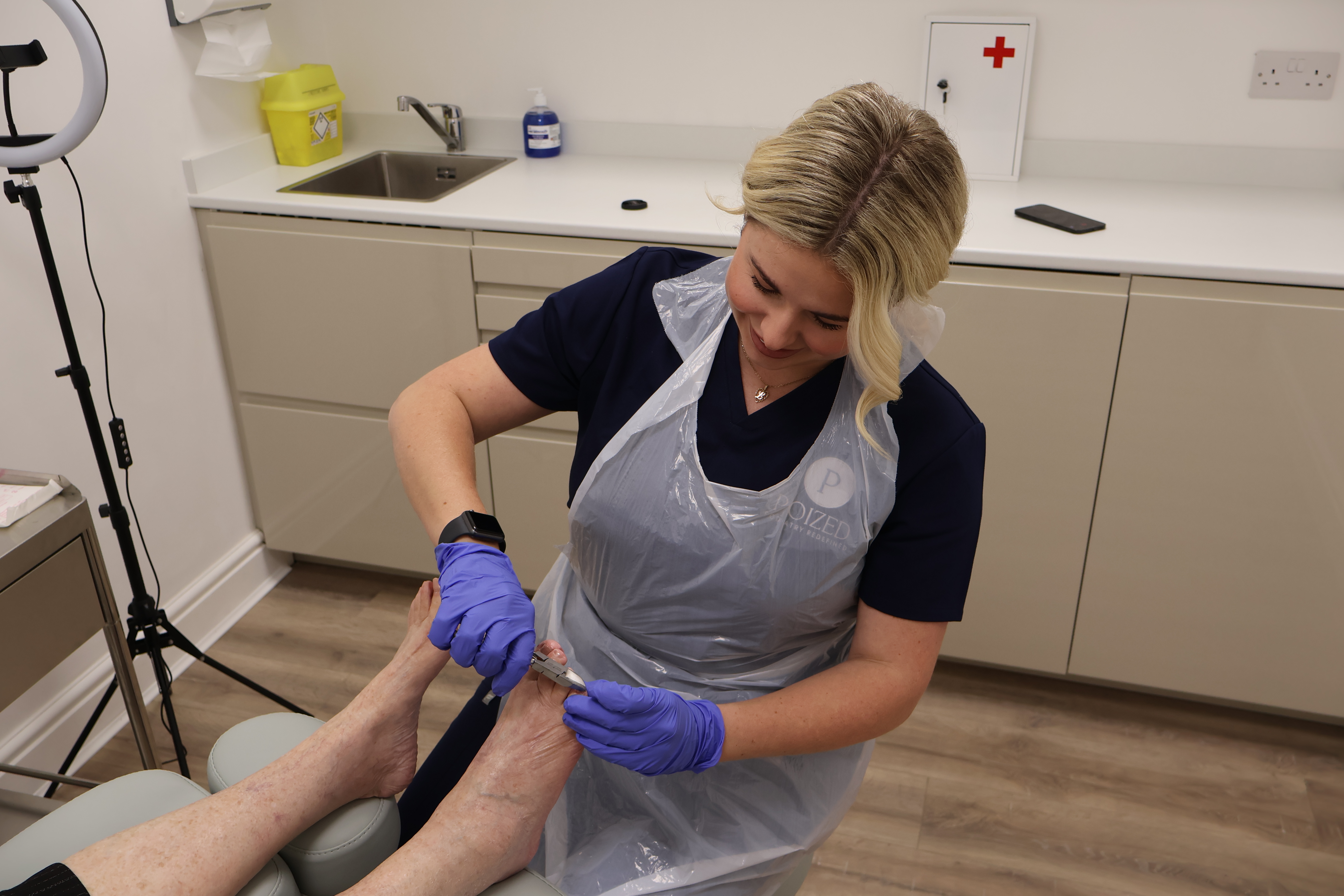Diabetic foot check
Diabetes can significantly impact foot health, leading to complications such as nerve damage and poor circulation. These issues can result in reduced sensation in the feet and hinder the healing of sores or infections. Regular diabetic foot checks are crucial for early detection and management of potential problems, ensuring that your feet remain healthy and pain-free. During a diabetic foot check, we provide a comprehensive examination and offer targeted treatments.

What to expect during a diabetic foot check
During your diabetic foot check, we will start by taking a thorough medical history and assessing your current foot health. This includes evaluating circulation, nerve function, and any existing foot issues. We will inspect your feet for signs of infection, ulcers, or abnormalities and provide treatment as necessary. If needed, we will take preventive measures such as debriding wounds, applying specialised dressings, or recommending bespoke insoles and footwear. You will also receive education on foot care and maintenance to help you manage your condition effectively.
Comprehensive assessment
We provide a thorough evaluation of nerve function, circulation, and overall foot health to identify any issues early
Specialised wound care
Services include debriding dead tissue, applying specialist dressings, and advanced treatments like larvae therapy and negative pressure therapy
Foot management
Expert treatment for diabetic fractures including casting and pressure relief techniques
Integrated care
We have the ability to recognise diabetic emergencies and can offer advice if more immediate intervention is required
Footwear solutions
Provide bespoke insoles and footwear tailored to your needs
Education and preventive care
Personalised advice and education on foot care, nail maintenance, and risk management to help you stay proactive in your diabetes management
FAQs
Why is a diabetic foot check important?
Diabetic foot checks are crucial because diabetes can cause nerve damage and poor circulation, increasing the risk of foot injuries and infections. Regular check-ups help detect problems early and prevent serious complications.
What does a diabetic foot check involve?
The check involves assessing nerve function, blood circulation, and inspecting your feet for any issues such as sores, infections, or deformities. We may also provide treatments and recommend preventive care.
How often should I have a diabetic foot check?
It is recommended to have a diabetic foot check at least once a year. However, if you have ongoing issues or notice changes in your feet, more frequent visits may be necessary.
What are the signs of diabetic foot problems?
Signs include numbness or tingling in the feet, sores that don’t heal, changes in skin colour, swelling, or any unusual pain or discomfort.
Can diabetic foot problems be treated?
Yes, many diabetic foot problems can be effectively treated. Treatments may include wound care, specialised footwear, and managing underlying conditions such as Charcot foot.
What if my foot check reveals a serious issue?
If a serious issue is detected, we will provide you with the correct advice, which may require attending A&E.
Our Services
Gait analysis
Our gait analysis examines your walking and running patterns to identify any abnormalities or imbalances that may be causing pain or discomfort.
MSK follow up appointment
After an advanced MSK assessment, we review progress, reassess and evaluate the effectiveness of your current treatment
Advanced musculoskeletal consultation
A comprehensive evaluation of your lower limbs to identify issues affecting movement or overall foot health
